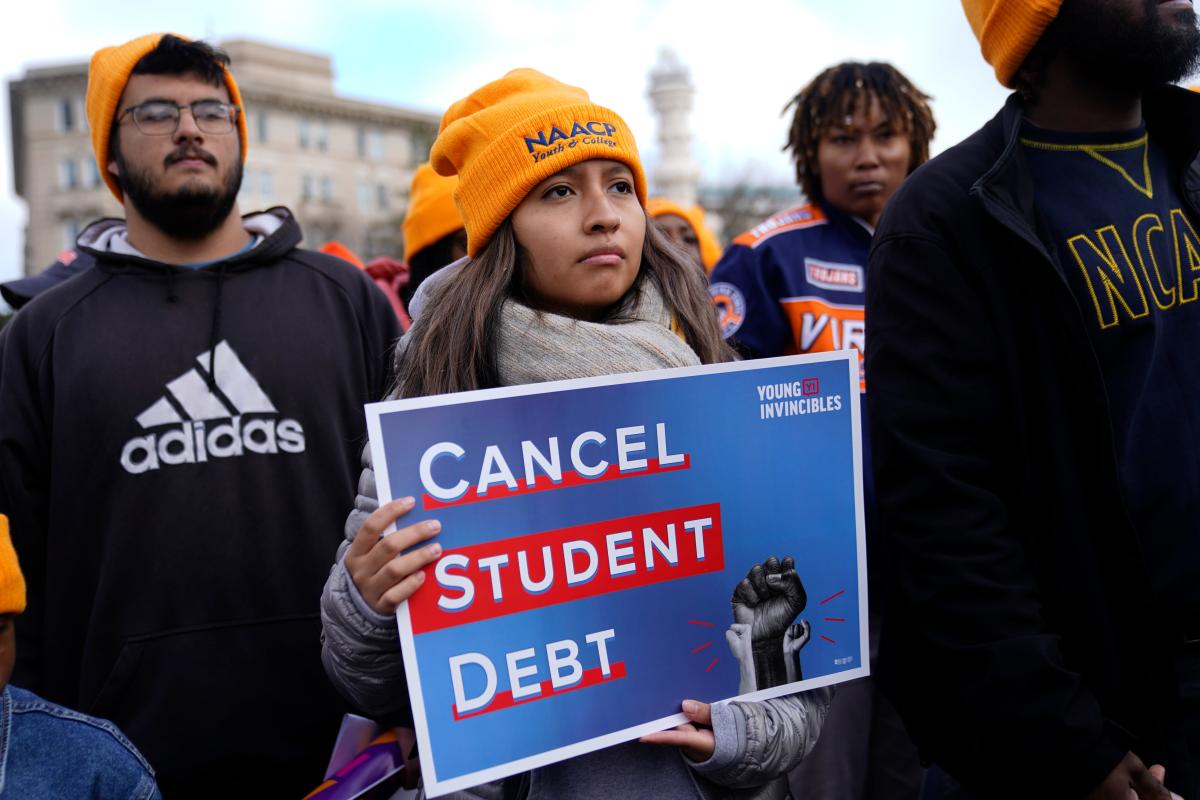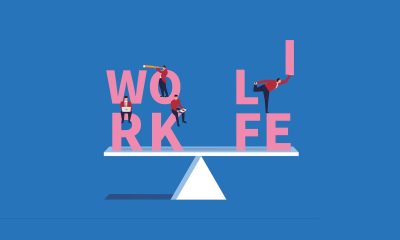Personal Finance
Student loan forgiveness could ding your credit score. Here’s why.

Student loan forgiveness sounds like a great deal for tens of millions of borrowers, except for the temporary credit score hit some might get from it.
Student loans have contributed positively to borrowers’ payment histories since the pandemic, thanks to the federal payments pause.
Payment history typically is the most important credit category, accounting for 35% of a credit score, says consumer credit reporting company Experian. Amount owed is second at about 30%, followed by credit history (15%) and types of credit and new accounts or credit inquiries at 10% each.
When an account in good standing falls out of the mix, some people may see a temporary dip in their credit score.
“Something like this happened to me when I paid off my car loan,” said Ted Rossman, senior Bankrate.com industry analyst. “My credit score dropped 20 points, which seems odd. You’re supposed to pay off debt, but it has more to do with active accounts and the mix of credit. The big picture is don’t stress about it.”
Where things stand: Everything to know about student loan forgiveness as Supreme Court focuses on Biden’s debt plan
Just avoid it: Is it possible to avoid student debt? These career, education tracks offer a different path
How much could student loan forgiveness affect my credit score?
First, more people will see a rise in their credit scores than a decline “and the vast majority of consumers will not see the score move more than 20 points,” said Ethan Dornhelm, vice president of Scores and Predictive Analytics at data analytics company FICO, which produces FICO scores.
A FICO Score is a three-digit number based on information in your credit reports. It helps lenders determine how likely you are to repay a loan, which affects how much you can borrow, how many months you have to repay and at what interest rate.
If those who see a dip in their FICO Score continue to make on-time payments and manage their debt, they should eventually see a rebound in their score.
“There’s a pretty good chance in a month or two, the bumps will smooth out a bit,” Rossman said.
Raise the bar: Do you have a good credit score? Credit expert shares tips on how to improve your score.
Lower your cost: Applying for a mortgage? How to improve your credit score and save when buying a house
Will student debt get cancelled?
The Supreme Court heard arguments earlier this year on whether the Biden administration has the authority to cancel up to $10,000 (up to $20,000 for Pell Grant recipients) of student debt per borrower, but it can take months for the Court to issue a ruling.
While the administration is “hopeful” the Court will allow the debt relief program, it said either way, the pause on student loan repayments will end.
“The pause will end 60 days after the Supreme Court makes a decision on the case,” it said. “If no decision has been made by June 30, 2023, payments will resume 60 days after that.”
Get it started, already: When will student loan payments resume? A new lawsuit aims to lift the payment pause
Local help: California helps college students cut their debt by paying them to help their communities
What can I do to minimize a drop in my credit score?
“What is most important is that consumers make payments on time to the extent possible and be careful not to take on debt that they don’t need or can’t afford,” Dornhelm said. “Those behaviors, whether on a student loan, personal loan, or a credit card are likely to help a consumer’s FICO Score in the long run.”
Specific steps people can take to ensure the least harmful impact on your credit score, Dornhelm said, include:
-
set up reminders and automatic payments to ensure you don’t get pinged for missing a payment,
-
read all communications from your student loan provider, which may offer additional financial solutions and options,
-
consider refinancing or consolidating loans to lock in a more manageable monthly payment,
-
contact your student loan servicer ahead of time to discuss options. Depending on your circumstances, you may be eligible for additional forbearance or deferment. Unlike the deferment provided by the CARES Act during the pandemic, though, these won’t be automatic and may require you to provide some information about your current financial situation.
Medora Lee is a money, markets, and personal finance reporter at USA TODAY. You can reach her at mjlee@usatoday.com and subscribe to our free Daily Money newsletter for personal finance tips and business news every Monday through Friday morning.
This article originally appeared on USA TODAY: Student loan forgiveness could lower your credit score. Here’s why.
Read the full article here

-

 Passive Income6 days ago
Passive Income6 days agoThe One Microsoft Design Tool Business Owners Shouldn’t Miss
-

 Side Hustles4 days ago
Side Hustles4 days agoThe DOJ Reportedly Wants Google to Sell Its Chrome Browser
-

 Investing5 days ago
Investing5 days agoThis Founder Turned a Hangover Cure into Millions
-

 Side Hustles4 days ago
Side Hustles4 days agoHow to Create a Unique Value Proposition (With Tips & Examples)
-

 Investing6 days ago
Investing6 days agoYour Firsthand Experiences Shape the Way You Run Your Business — Here’s How Mine Shaped Me
-

 Investing3 days ago
Investing3 days agoAre You Missing These Hidden Warning Signs When Hiring?
-

 Investing4 days ago
Investing4 days agoBarbara Corcoran, Lori Greiner Differ on ‘Quiet Vacationing’
-

 Make Money3 days ago
Make Money3 days ago7 Common Things You Should Never Buy New


















